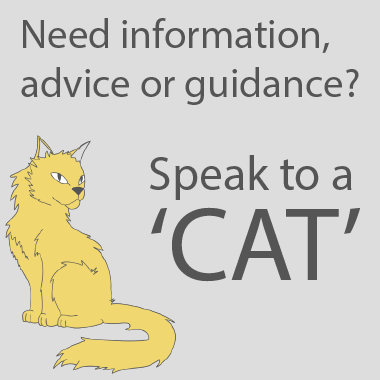Course Overview
This three year, full time course is delivered and awarded by the Royal Veterinary College (University of London) with support from The College of Animal Welfare.
The course provides the unique opportunity to study towards a foundation degree in veterinary nursing at the UK’s largest and oldest veterinary school. Throughout the qualification you will undertake clinical practice placements at veterinary practices, which will be arranged for you by our placement liaison team, however you must be prepared to make your own travel arrangements to your placements.
The Royal College of Veterinary Surgeons (RCVS) has given direct accreditation to this programme, meaning graduates will be able to apply to join the RCVS Register of Veterinary Nurses in accordance with the requirements of the Veterinary Surgeons Act (1966) and the RCVS Veterinary Nursing Registration Rules. It is by means of RCVS registration that vet nurses achieve their highly valued professional status.
Students on this course come from all different backgrounds and countries, but all share the common goal of wanting to succeed in the veterinary field and help contribute to animal welfare and health.
Additional financial support may be available for this course.
Subject to availability. Terms and conditions apply.
Key Facts
- Attendance: Full time
- Duration: Three years
- Start Date: September
- Location: The foundation degree programme is based primarily at the Hawkshead Campus of the Royal Veterinary College near Potters Bar, London.
Course Content
Throughout the course of the FdSc degree programme, you will undertake formal veterinary nurse training with the guidance and support of world renowned clinicians, gaining both the theoretical knowledge and practical experience needed to prepare you for the challenges that come with achievement of professional status as a registered veterinary nurse. You will cover the following units:
Year 1:
- Professional Development and Clinical Skills 1
- Clinical Nursing Practice 1 & 2
- Veterinary Nursing Applied Science 1 & 2
Year 2:
- Professional Development and Clinical Skills 2
- Emergency, Critical Care Nursing and Anaesthesia
- Diagnostic Techniques
Year 3:
- Professional Development and Clinical Skills 3
- Applied Nursing Care
- Professional Practice
Clinical experience
Clinical practice is a significant element of the course, and will be experienced in between your theory blocks. Your placements will be arranged for you in RCVS approved Training Practices by The College of Animal Welfare’s placement liaison team. You will have the opportunity to train at a range of veterinary practices, including the Royal Veterinary College’s own world-leading hospitals, giving you hands-on experience and a real insight into the day-to-day role of a vet nurse.
Assessment
In order to complete the foundation degree, you will be required to pass all of the University’s practical and written assessments and examinations.
Entry Requirements
Application rates for this course are high, and offers for a place are competitive. Admissions tutors consider all applications carefully on their individual merits.
A list of acceptable entry requirements (both academic and work experience) can be found on the Royal Veterinary College’s website.
Prior to applying for this programme, please ensure you read the Royal College of Veterinary Surgeons (RCVS) Disability Guidance on the Recruitment of VN Students which can be downloaded here.
Work experience requirements
It is important to ensure that all applicants have an understanding of the veterinary profession – and the work that veterinary nurses do – before undertaking formal veterinary nurse training. As such all candidates are required to provide evidence of a minimum of two week’s work experience in a veterinary practice and at least two week’s experience in a variety of different animal environments (outside of your home environment) before commencing the programme.
After you have applied you may be sent a supplementary application form to complete in order to gain more information about your work experience placements.
What Next?
Registering as a newly qualified veterinary nurse (RVN)
Graduates of the Royal Veterinary College’s Foundation Degree in Veterinary Nursing are able to apply to join the RCVS Register of Veterinary Nurses. Following the submission of the registration form and fee, successful applicants will then be entitled to call themselves a Registered Veterinary Nurse (RVN) and use the post nominal term, RVN, after their name. They will also receive a Registered Veterinary Nurse badge from the RCVS that, when attached to their uniform, identifies them to members of the public and their colleagues as being of professional status. The registration also demonstrates to employers and the general public that the RVN is accountable to the RCVS for their professional conduct and are committed to keeping their knowledge and skills up-to-date through continuing professional development (CPD).
Progression and employment prospects
As a result of a national shortage, the demand for registered veterinary nurses continues to remain high. As such job prospects are excellent both within veterinary practice and in other related areas. Salary prospects have improved significantly in recent years, meaning that veterinary nurses now earn an average of £24,227 per year (SPVS Salaries Survey 2021).
Current veterinary nurse jobs are often advertised on our job board, if you’re looking for a new opportunity in the profession.
Graduate veterinary nurses are afforded many opportunities both within general practice and within more specialised areas, such as surgical nursing. Many veterinary nurses choose to remain in first opinion veterinary practice, whereas others may choose to move into referral practice or in to a large veterinary hospital. You could also look into becoming a team leader, or branching out into areas such as practice management, research, teaching, sales or rehabilitation.
Alternatively, you may wish to pursue further training by completing a BSc (Hons) Top Up degree programme at the Royal Veterinary College or Edinburgh Napier University.





